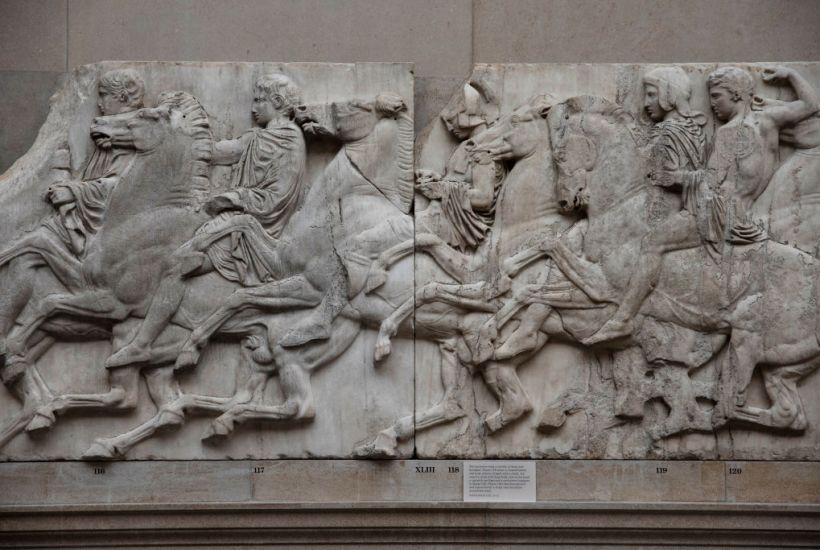The proposed return to Greece, in the guise of loans, of some of the British Museum’s most iconic objects, the Elgin marbles, is a measure of how far the ‘decolonisation’ campaign has gone in brainwashing the guardians of our cultural heritage. There’s little doubt that the Greek government, which still claims rightful ownership, will never willingly return such a loan, and we all know that possession is nine-tenths of the law.
Already a subscriber? Log in
Subscribe for just $2 a week
Try a month of The Spectator Australia absolutely free and without commitment. Not only that but – if you choose to continue – you’ll pay just $2 a week for your first year.
- Unlimited access to spectator.com.au and app
- The weekly edition on the Spectator Australia app
- Spectator podcasts and newsletters
- Full access to spectator.co.uk
Or




















Comments
Don't miss out
Join the conversation with other Spectator Australia readers. Subscribe to leave a comment.
SUBSCRIBEAlready a subscriber? Log in